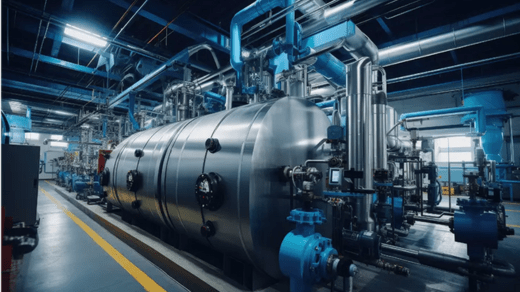Key Strategies for Improving Industrial Energy Performance with Modern Equipment
In today’s industrial landscape, improving energy performance is not just about cutting costs but also about meeting sustainability goals and enhancing operational efficiency. The integration of modern equipment can play a significant role in optimizing energy use across industrial operations. Below are some key strategies to boost energy performance through the use of advanced technologies.
Industrial Heat Pump Systems: Ensuring Efficient Temperature Control
Industrial Heat Pump Systems are becoming an essential part of energy-efficient strategies for many industries. These systems provide an environmentally friendly and energy-saving alternative for heating and cooling processes by transferring heat instead of generating it through combustion. By utilizing renewable energy from the environment, such as air, water, or the ground, industrial heat pumps reduce the need for traditional energy sources, cutting both energy consumption and greenhouse gas emissions. Incorporating these systems can significantly improve temperature control in manufacturing, processing, and other industrial applications while driving down operational costs.
Industrial Boilers: Optimizing Fuel Use and Reducing Emissions
Industrial boilers are vital for generating steam and hot water used in various industrial applications. To improve energy performance, industries must focus on optimizing the efficiency of industrial boilers. Modern boilers, equipped with advanced controls and sensors, allow for better fuel use management, leading to reduced fuel consumption and lower operational costs. Additionally, newer models of industrial boilers are designed to minimize emissions, helping businesses comply with environmental regulations. An effective maintenance schedule and periodic upgrades to industrial boilers supply systems can further enhance their energy efficiency and prolong their lifespan.
Automation and Control Systems: Enhancing Operational Efficiency
Automation and control systems are crucial in streamlining industrial processes and improving energy performance. By implementing advanced control systems, industries can continuously monitor and adjust operations in real time, ensuring that energy use is optimized throughout the production cycle. These systems can manage lighting, heating, cooling, and machinery operation, reducing waste and enhancing overall efficiency. Furthermore, incorporating predictive maintenance technologies into control systems can prevent equipment failures and reduce downtime, further improving energy savings.
LED Lighting and Smart Energy Management: Cutting Energy Waste
Lighting is one of the largest energy consumers in many industrial facilities. The switch to energy-efficient LED lighting, combined with smart energy management systems, can lead to significant reductions in energy usage. LEDs consume less power and have a longer lifespan compared to traditional lighting systems. Smart lighting solutions, which adjust based on occupancy or natural light levels, can further reduce unnecessary energy consumption. When integrated with a broader energy management system, this approach enables real-time monitoring and control of lighting across the entire facility, enhancing energy efficiency.
Upgrading to High-Efficiency Motors and Drives
The use of high-efficiency motors and variable frequency drives (VFDs) in industrial equipment can have a significant impact on energy performance. Motors are often responsible for a large portion of energy use in industrial settings, powering everything from pumps to conveyor belts. High-efficiency motors are designed to reduce energy losses while delivering the same or greater output compared to conventional motors. Additionally, VFDs allow for better control over motor speeds, adjusting energy use to match the demand, which can further reduce consumption, especially in applications with variable loads.
Energy Recovery Systems: Harnessing Waste Heat
Energy recovery systems are essential in industries that generate significant amounts of waste heat during operations. By capturing and reusing waste heat, such as exhaust gases or heated water, these systems can improve overall energy efficiency. This recovered energy can be used to preheat fluids, generate electricity, or assist in other processes, reducing the need for external energy sources. Technologies such as heat exchangers and organic Rankine cycle systems are widely used to recover waste heat in industries like cement, steel, and chemical manufacturing.
Renewable Energy Integration: A Sustainable Future
Integrating renewable energy sources into industrial operations is another key strategy for improving energy performance. Solar panels, wind turbines, and biomass systems can complement traditional energy sources, reducing reliance on nonrenewable resources and decreasing operational costs. Many industries are also investing in energy storage solutions to optimize the use of renewable energy, storing excess energy generated during peak production times for use during periods of high demand. This sustainable approach not only reduces energy costs but also contributes to meeting corporate social responsibility and environmental targets.
Conclusion
Improving industrial energy performance with modern equipment involves a combination of advanced technologies and strategic upgrades. By incorporating energy-efficient solutions such as Industrial Heat Pump Systems, upgrading to high-efficiency motors, and optimizing energy recovery, industries can significantly reduce their energy consumption and operational costs. Additionally, automation, smart energy management, and the integration of renewable energy sources provide long-term sustainability benefits, ensuring that industries can meet both their financial and environmental goals. Embracing these modern strategies will position businesses to thrive in an increasingly energy-conscious and cost-sensitive market.




